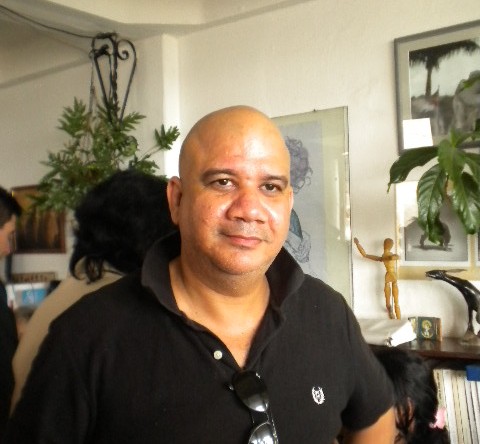Photo: Exilda Arjona
I’ve spent weeks developing today’s explanation. My colleague Miriam Celaya has given me, as we Cuban peasants say, “the forced foot”, a shove in the ass. I think I did it once, in my previous blog. Even now I fear that if other colleagues from the free and alternative blogosphere decide to explain how they post their texts and images, we’ll end up finally giving the compass to Military Counter Intelligence (G2). But as “he who has nothing to hide has nothing to fear,” here goes.
ONE. I am helped by a kind soul who from time to time once a month copies my texts from abroad; the money she spends on international calls doesn’t allow her to receive my dictation for more than three minutes. So because of this, three hundred words.
TWO. I send the photos at random, indiscriminately, and as the repressors are less and less original, at least in the Eastern part of the country, and almost always repress the same people, when they beat Caridad Caballero Batista, Rolando Rodríguez Lobaina or Idalmis Núñez in Santiago de Cuba, maybe a few months ago, I already sent their photos off into cyberspace. Sometimes I hit the target and report within 72 hours of an event, a real privilege.
THREE. With this I really can’t manage. I don’t denounce for the sake of argument, I reveal the images, the names of the violators “so that the shame may convert him(them)” in the words of Martí. One day they will be pointed out by the accusing fingers of the most ordinary citizens and it will be worth it to have a Constitution; you will see, be patient. I don’t reply to insults or provocations. I am a poet and actor in the theater of the street: that is, a provocateur par excellence. I’m satisfied with letting loose this chirp of trumpet-blasts in order to stir up the honeycomb a little. Among my standards of ethics and civility is the intention not to offend anyone, and I never will, I’m sure.
FOUR: This blog is divided into three pieces: one belongs to me, its intellectual author, here are my tantrums and doubts; another belongs to my good administrators, patient and sweet people as long as I deserve it, and if I behave badly it is not due to them, they don’t deserve it, because there they are, ready to serve me every day; and the third is you, my readers and friends. So everyone has the right to sustain me or threaten me with “cracking your face in two” as someone has said recently. Help yourselves to equal servings, don’t fight over it.
FIVE. Sometimes I travel over 120 miles to view the blog at an internet cafe. From San Germán there’s no place closer where I can get on-line. Is it a reward or punishment? I don’t know, but I feel like a great guy when I walk through the door of a hotel with a piece of my blog on a flash memory stick recently fished out of this stormy sea of the universal country that is the Internet. So, you have to believe me, these sacrifices are for my children: so that one day I can tell them without blushing the little that I did. I do it for the patience of my good Exilda, who prays every night “so that the beasts won’t come back to the garden” (sic), and I do it for you: in a few years when compiling these shreds you can see the face of a man who was often afraid, but whose desire to become a free man overcame all his anxieties. Thank you.
August 17 2010


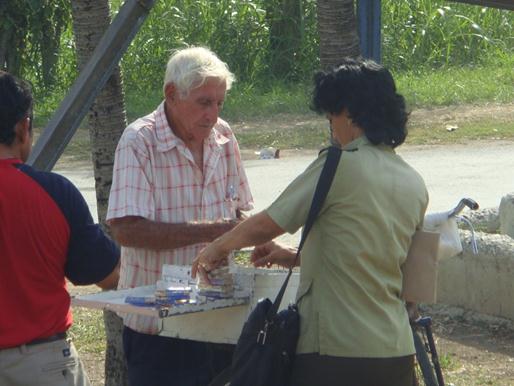
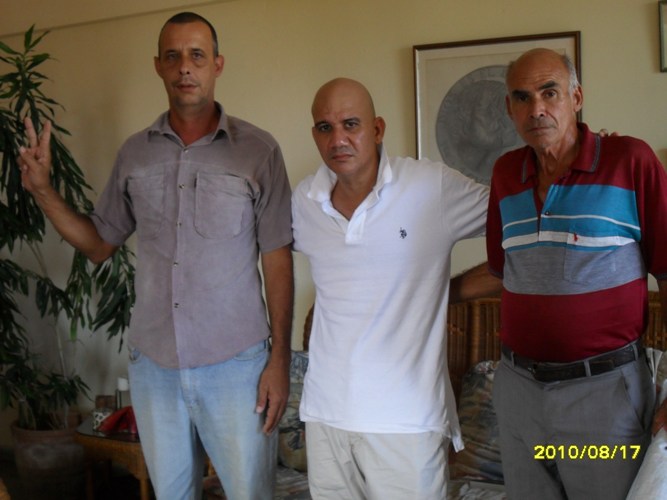 Sixty-four days of hunger strike I feel a decline in vision, nausea, cramps, malaise; talking tires me quite a bit and ideas get lost in my head.
Sixty-four days of hunger strike I feel a decline in vision, nausea, cramps, malaise; talking tires me quite a bit and ideas get lost in my head.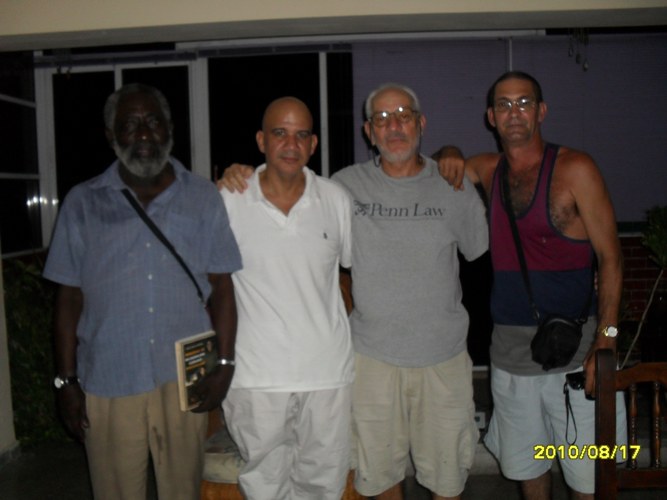
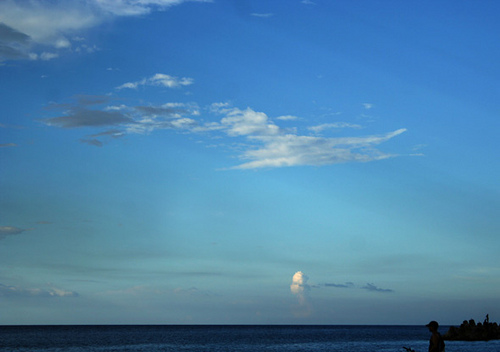
 The first time Valentín set foot in a jail, he was fifteen years old. Up and down the narrow streets of Old Havana, together with a group of delinquents, he set out to steal the purses or video cameras of the unsuspecting tourists.
The first time Valentín set foot in a jail, he was fifteen years old. Up and down the narrow streets of Old Havana, together with a group of delinquents, he set out to steal the purses or video cameras of the unsuspecting tourists.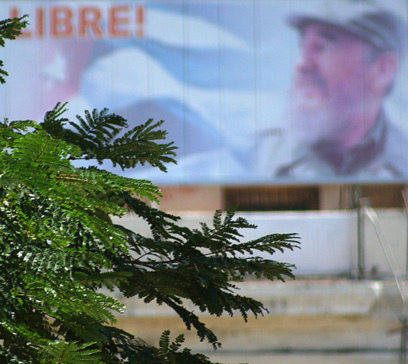

 The following letter was written by Reynol Vicente Sanchez, a common prisoner who is currently in Combinado del Este.
The following letter was written by Reynol Vicente Sanchez, a common prisoner who is currently in Combinado del Este.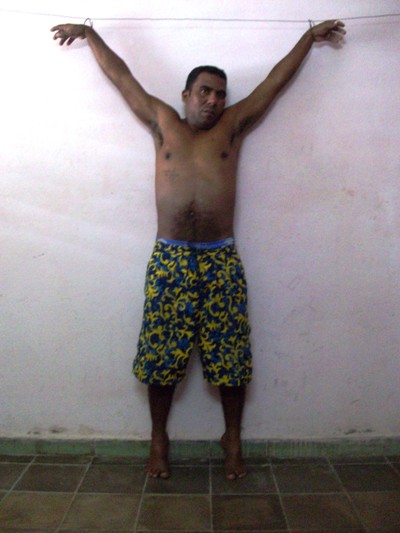

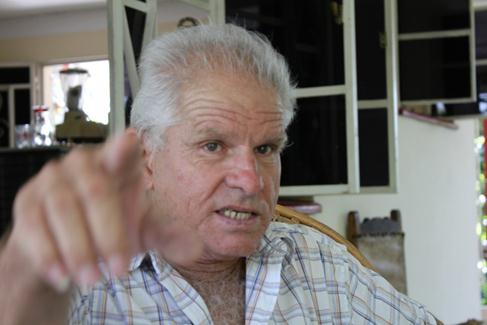 The Minister of Finances and Prices, Lina Olinda Pedraza Rodriguez, ordered the execution of a process of confiscation against Teófilo Roberto López Licor, 66, based on Legal Decree 149 “on the confiscation of goods and accumulations made through improper enrichment,” known as the Law Against the Newly Rich and its regulation, Decree No. 187, both from 1994.
The Minister of Finances and Prices, Lina Olinda Pedraza Rodriguez, ordered the execution of a process of confiscation against Teófilo Roberto López Licor, 66, based on Legal Decree 149 “on the confiscation of goods and accumulations made through improper enrichment,” known as the Law Against the Newly Rich and its regulation, Decree No. 187, both from 1994.